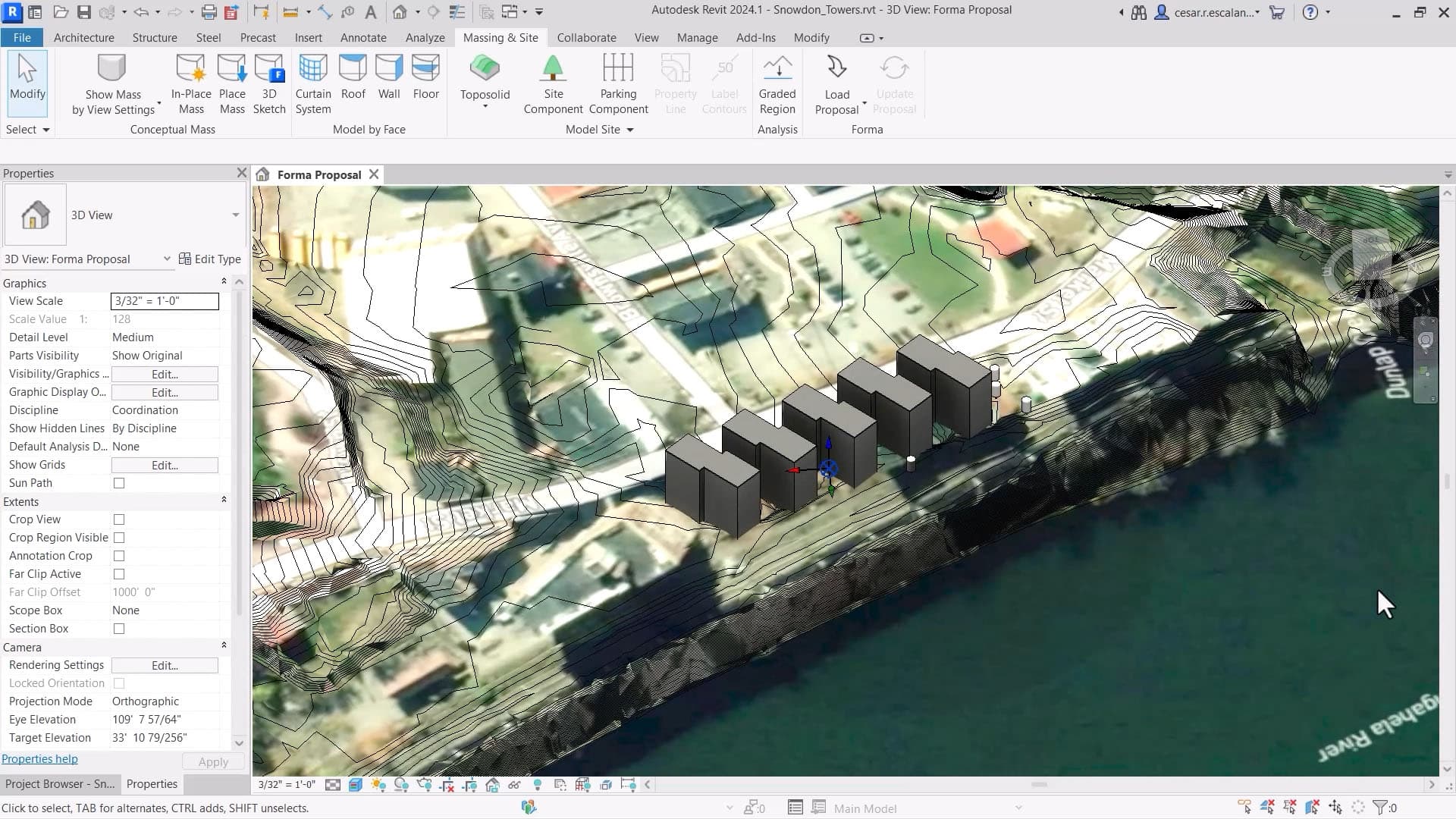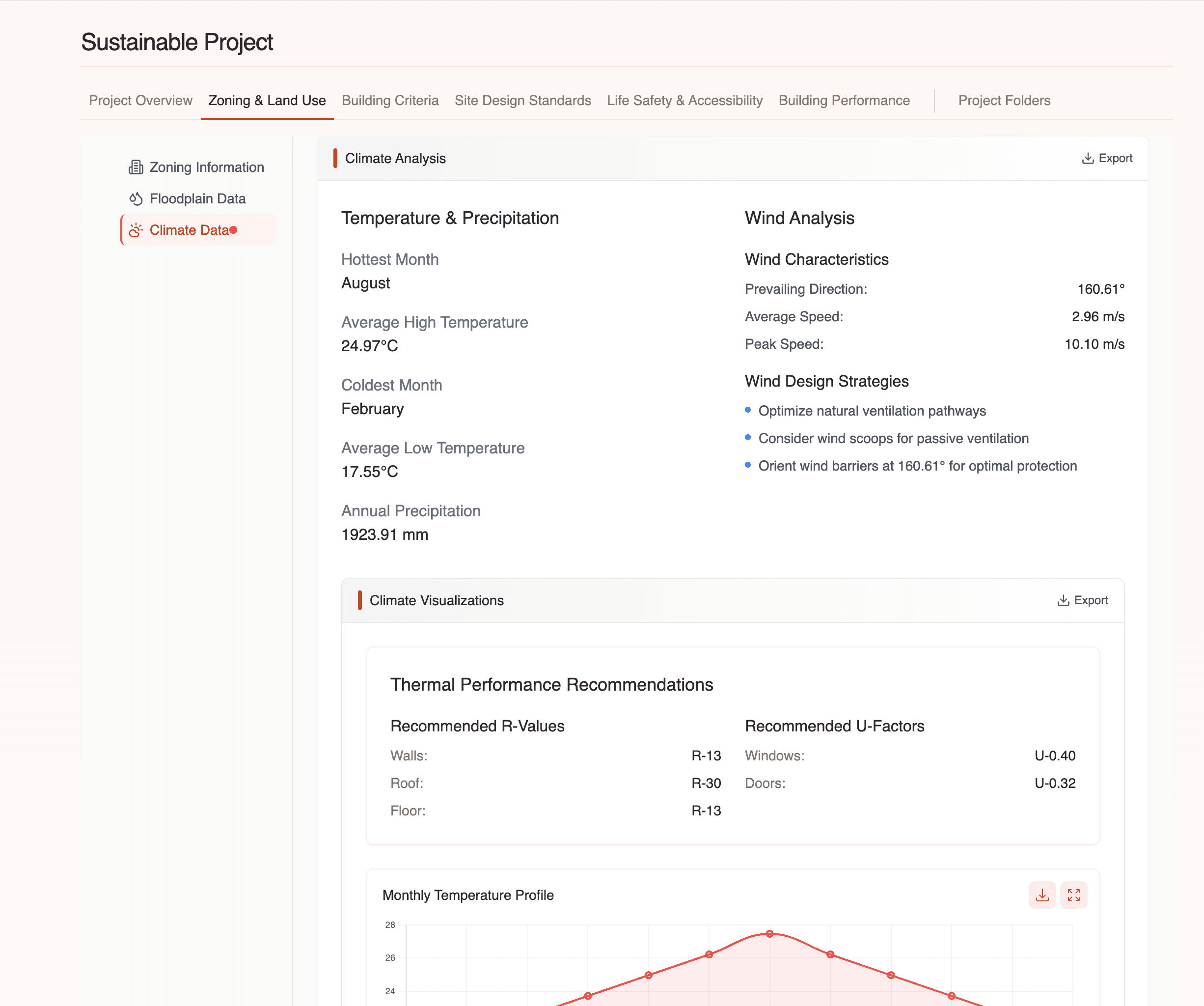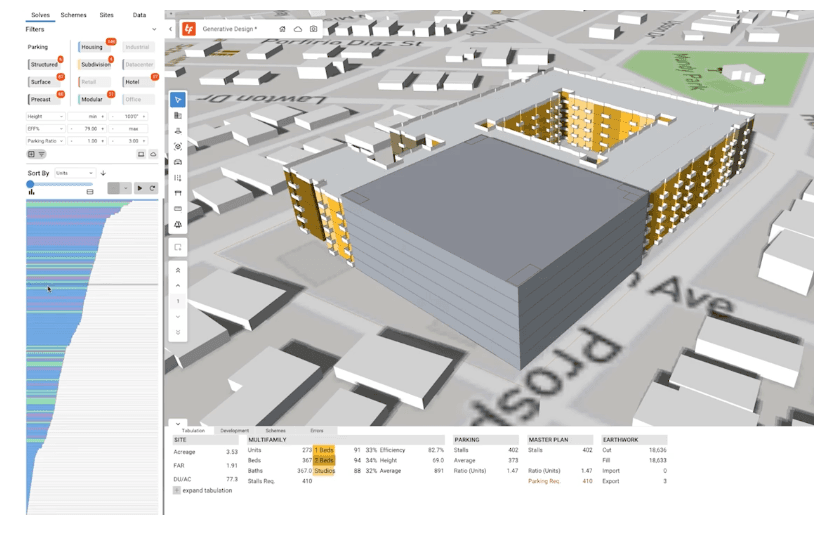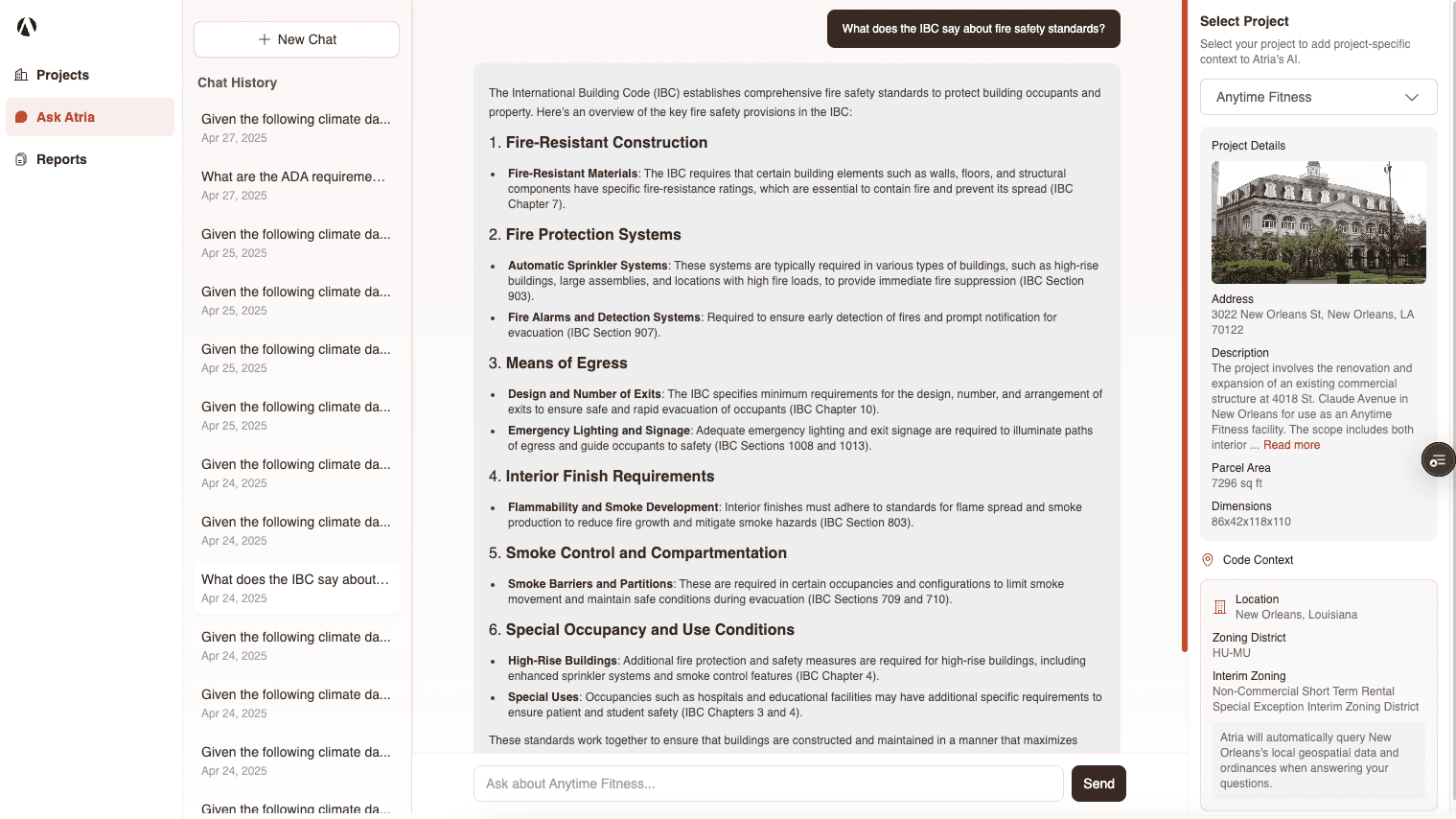
The 2025
Architecture AI Toolkit
Introduction to Applied AI in Architecture
The architectural profession stands at a technological crossroads as artificial intelligence transforms professional workflows. While general AI tools like Claude, ChatGPT, and Deepspeek have revolutionized many industries, architecture has been slower to adopt AI-specific solutions. This introduction explores how applied AI (highly trained and contextualized models designed for specific problems) can address unique architectural challenges and workflow inefficiencies.
In the world of artificial intelligence, however, a concept known as Applied AI is gaining significant traction. Applied AI, versus General AI, refers to the idea of utilizing highly trained and contextualized AI models or AI-enabled technologies to solve specific problems. Software engineering, law and legal services, healthcare, and more industries are being taken by storm by AI-centered tools built to improve their workflows or tackle specific problems in these fields.
The world of architecture, construction, and construction-centric engineering (including contracting and civil) has yet to see mass adoption of AI tooling. After speaking with hundreds of architects, developers, and industry stakeholders, we've observed several hesitations specifically regarding AI in architecture:
- 65% Never Used AI:
- The majority of architects have yet to incorporate AI into their workflow despite being aware of its existence.
- 25% Have Reservations:
- This group acknowledges AI's potential but hesitates due to concerns about accuracy, energy consumption, and workflow disruption.
- 10% Currently Use AI:
- A small percentage of architects actively utilize AI tools, primarily for stakeholder communications, report generation, and compliance verification.
Based on Atria's surveys (2025).
Architect AI Usage Statistics (2025)
Based on Atria's surveys
We believe AI's most valuable role in architecture is to handle the tedious, repetitive aspects of the profession, tasks like document processing, code analysis, and administrative paperwork - rather than replacing the creative design process. Architects bring irreplaceable human intuition, cultural understanding, and contextual awareness to their designs that AI simply cannot replicate. By automating the mundane elements of architectural practice, AI can actually free architects to focus more deeply on the creative and human-centered aspects of design that truly matter.
Sustainability and Climate Analysis

Autodesk Forma
A cloud platform integrated with Revit and Rhino, Forma leverages AI and real-world data for real-time environmental analysis (sunlight, wind, noise, carbon) directly within the design workflow.
Its strength lies in providing instant feedback on the environmental impact of design options, facilitating data-driven sustainable choices early on.

Cove Tool
An AI-powered sustainability platform focused on optimizing for high-performance, low-carbon buildings through advanced analytics and consulting.
Excels at complex energy modeling, embodied carbon calculations, climate analysis, and LEED compliance, streamlining detailed sustainability assessments.

Atria
Leverages geospatial and climate data to provide instant, location-specific insights into climate factors, wind/solar potential, and sustainability.
Its unique value is generating project-specific recommendations and detailed climate/site analysis reports rapidly for early-stage decision making.
Feasibility and Planning

TestFit
An AI platform automating real estate feasibility studies and optimizing site planning based on user-defined constraints.
Its core strength is rapidly generating and evaluating thousands of buildable site plan options (considering zoning, parking, setbacks, unit mix) in real-time.

Architechtures
A cloud-based, generative AI platform specialized in optimizing residential building design based on detailed criteria.
Excels at quickly generating optimized 2D/3D residential layouts by inputting specific parameters like room dimensions, housing mix, and regulations.

Atria
Streamlines feasibility using various inputs (address, documents, descriptions) combined with GIS, AI, and algorithms for instant insights.
Its advantage lies in quickly delivering feasibility studies, setback analysis, and design guideline summaries from diverse starting points.
Floor Planning and Optimization

Finch
An AI-powered generative design tool specifically for optimizing early-stage floor planning and space configuration.
Integrates with Revit, Rhino, and Grasshopper, excelling at analyzing spatial relationships to generate optimal floor plans with real-time feedback on performance metrics (area, daylight, efficiency).

Hypar
A design automation platform streamlining the generation, evaluation, and optimization of building designs from concept to system layouts.
Its strength is automating repetitive design tasks and enabling real-time iteration, including intelligent space planning directly within tools like Revit.
Regulatory Compliance & Code Analysis

Atria
A leading platform for architecture compliance, code analysis, and site analysis, offering an all-in-one pre-design research solution.
Uniquely combines geospatial data, AI, and a vast dataset of codes/ordinances to streamline feasibility checks and ensure regulatory compliance.

Procore Copilot
An AI assistant integrated into the Procore construction management platform, streamlining workflows and data access.
Its key feature is allowing users to query project data (RFIs, drawings, specs, documents) using natural language for instant answers, summaries, and risk reduction.
Looking Forward: AI Augmentation
The goal of incorporating AI tools into architectural workflows should be augmentation of architectural talent, not replacement of the architect's essential creative vision. By automating mundane tasks, AI can free up valuable time for architects to focus on what they do best: designing thoughtful, contextual, and beautiful spaces.
As we look to the future, we anticipate more specialized AI tools emerging across different aspects of architectural practice. Beyond all the tools we've already mentioned, we expect to see additional sophisticated tools for modeling, documentation automation, cost estimation, and construction sequencing.
The true promise of these advancements lies not just in efficiency, but in the elevation of the architectural practice itself. By entrusting routine analysis and data processing to AI, architects gain more bandwidth for deep thinking, client collaboration, and innovative design exploration. This shift allows the profession to recenter itself on the core values of creativity, human experience, and thoughtful contribution to the built environment, ultimately leading to richer, more impactful architectural outcomes for everyone.
Shaping the future of architecture with AI
At Atria we believe in creating AI tools that handle the tedious aspects of architectural practice,
freeing architects to focus on the creative and human-centered aspects of design that truly matter.
Stay Updated
Subscribe to Our Newsletter
Get the latest updates on architecture tech, AI research tools, and Atria product features.